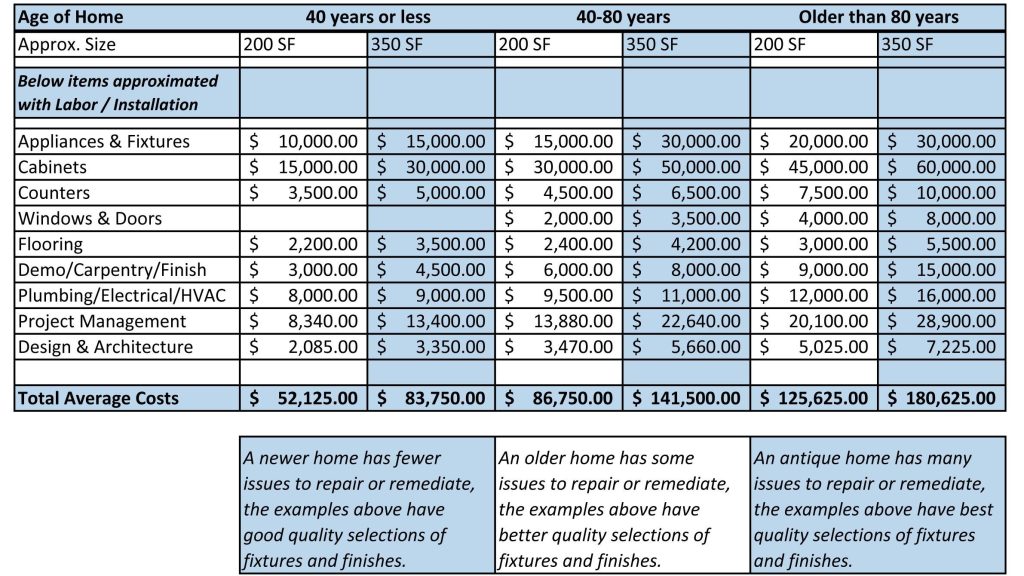
Estimating home renovation costs is paramount for any achievementful home improvement project. A well-planned budget is essential to avoid unforeseen financial difficulties and ensure your project stays within your means. Estimating home renovation costs involves a careful evaluation of various factors, from material expenses to labor costs, to ensure a clear financial picture of your project. Many homeowners face significant financial setbacks during renovation due to insufficient planning. This article will help resolve these challenges and offer actionable solutions. This article will guide you through the process of estimating home renovation costs, including detailed breakdowns of varied facets of planning and budgeting. We’ll explore key factors to consider, tools and resources to assist in your estimation, and strategies for managing your budget to ensure a achievementful renovation.
Understanding the Importance of Estimating Costs
Initial Steps in Planning
Planning a home renovation is an exciting prospect, but it’s vital to understand the importance of estimating costs accurately from the start. A realistic estimate of costs helps you set realistic expectations, allocate resources effectively, and avoid financial setbacks. Insufficient planning can lead to overspending and unexpected delays, hindering your project’s achievement. The first step to accurate cost estimations involves studying and planning the scope of work meticulously. It’s also crucial to consider the difference between estimating costs and precisely calculating them. The actual cost may differ from the estimate, so be prepared for adjustments and contingencies.
determineing Potential Costs
Material and Labor Expenses
A crucial component of estimating home renovation costs is determineing all potential costs involved in the project. This includes material expenses, labor costs, and any other project-related expenses. Careful consideration should be given to material costs, which can vary greatly depending on the type, quality, and quantity of materials needed. For example, choosing higher-quality wood flooring will undoubtedly boost the overall cost. Labor costs are another significant factor, often dependent on the complexity of the project. Consider factors such as material costs per square foot for flooring materials for accurate estimation. Get estimates from multiple contractors or laborers to ensure you have a well-rounded perspective. Additionally, consider permits, inspections, and any potential unforeseen expenses. Unexpected issues could arise during the project, so allocating a contingency fund is often a smart move.
Leveraging Tools and Resources
Utilizing Online Calculators and Professional Estimates
Home renovation project estimates can be significantly improved by taking benefit of various tools and resources. Online calculators can offer preliminary estimates based on inputs like room size and material choices. These calculators offer a quick starting point, helping you understand the rough scope of expenses for your project. However, consider these estimates as preliminary and supplement them with professional estimates for a more precise valuation. Consulting with a contractor or architect who specializes in home renovations will offer detailed insights and personalized estimates tailored to your specific project. This expertise is crucial to determine potential hidden costs or unanticipated complications. In addition to online tools, utilizing resources like homeowner forums or renovation-focused blogs can offer valuable insights and reviews from other homeowners.
Budgeting Strategies for Home Renovations
Creating a Detailed Budget Plan
Developing a thorough budget plan is vital for managing your home renovation costs effectively. Allocate specific budget amounts to various facets of the project, including materials, labor, permits, and potential unforeseen circumstances. Creating a detailed budget plan can be achieved with the aid of spreadsheets or dedicated budgeting software, making the process more organized and clear. Prioritize essential renovations and make informed decisions to ensure your renovations are carried out efficiently and meet your budget. This thorough budgeting process enables you to allocate sufficient funds for each stage of the renovation and avoid any unexpected expenses that may compromise your initial plans.
Managing and Monitoring Expenses
Tracking Expenses and Maintaining Control
Effectively managing and monitoring expenses is essential during a home renovation. Develop a system for tracking expenses throughout the project, noting all expenditures, whether large or small. This systematic approach ensures you remain informed about the current financial status of your project, helping you adapt to unexpected events. Utilize a spreadsheet or project management software to record expenses, and regularly review your progress against the initial budget. Adjust your budget as needed based on your observations, and don’t hesitate to consult with a financial advisor for guidance. Keeping meticulous records of every expense during the process is essential to maintaining control over your renovation budget and minimizing costly surprises.
Additional Tips for achievement
Considering Project Scope and Choosing the Right Contractor
Example of Cost Breakdown
Demonstrating a Sample Budget
Importance of Contingency Funds
Accounting for Unforeseen Expenses
In conclusion, estimating home renovation costs is a crucial step in any home improvement project. By meticulously planning your budget, considering potential hidden costs, and utilizing resources like online calculators and professional estimates, you can approach your renovations with confidence and avoid financial surprises. Remember to prioritize your needs, set a realistic budget, and thoroughly study your options. Now, take the next step and start planning your renovation project! Contact a contractor or home improvement specialist today for a complimentary consultation.